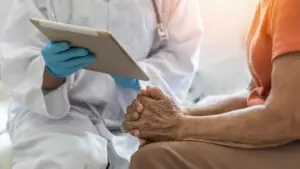
This FAQ page provides information on who is responsible for paying for a 5150 hold in California, the rights of individuals placed on a 5150 hold, and potential financial resources available to help cover the cost. If you or someone you know is in crisis, please seek immediate assistance from a mental health professional or emergency services.
Who Pays for a 5150 Hold in California?
The individual placed on the 5150 hold is generally responsible for paying for their own treatment. However, the cost may be covered by the county or state if the individual cannot pay or if they are covered by a health insurance plan that includes mental health benefits.
For a free legal consultation, call (310) 896-2723
What Is a 5150 Hold in California?
A 5150 hold is an involuntary psychiatric hold in California that allows individuals deemed a danger to themselves or others or who are gravely disabled due to a mental illness to be placed in a mental health facility for up to 72 hours. During this time, they are evaluated by mental health professionals to determine if further treatment is necessary.
Who Can Place Someone on a 5150 Hold in California?
A qualified professional, such as a licensed clinician or law enforcement officer, can place an individual on a 5150 hold if they meet certain criteria, including posing a danger to themselves or others or being gravely disabled due to a mental illness.
What Happens if the Individual Is Unable to Pay for Their Own Treatment?
Depending on the circumstances, if the individual cannot pay for their own treatment, the cost may be covered by the county or state. Additionally, financial resources may be available to help cover the cost, such as assistance from community mental health programs or social services.
Complete a Free Case Evaluation form now
Does Medi-Cal Cover 5150 Holds in California?
Medi-Cal, California’s Medicaid program, covers 5150 holds and the associated treatment. However, it is important to note that not all mental health providers accept Medi-Cal, so it is important to check with the provider before seeking treatment.
What if the Individual Has Private Health Insurance?
If the individual has private health insurance, the coverage for a 5150 hold and associated treatment will depend on the specific policy. Reviewing the policy details and contacting the insurance company for more information is important. Some policies may require pre-authorization or limit the number of days of coverage for inpatient psychiatric treatment.
Are Any Other Financial Resources Available to Help Pay for a 5150 Hold in California?
In addition to county or state programs, other financial resources may be available to help cover the cost of a 5150 hold and associated treatment, such as nonprofit organizations or foundations that provide mental health services. It is important to contact these resources for more information and assistance.
Can the Individual Be Charged for the 5150 Hold in California?
The individual cannot be charged for the 5150 hold, as it is a legal procedure. However, they may be responsible for paying for the associated treatment if they are not covered by insurance or other financial resources.
Can the Individual Be Involuntarily Held for Longer than 72 Hours?
Yes, an individual can be held for longer than 72 hours under certain circumstances. This typically requires a court order and a higher standard of proof than the initial 5150 hold. The individual can request a hearing to contest the hold and can be represented by an attorney.
Can the Individual Appeal the 5150 Hold in California?
Yes, the individual can appeal the 5150 hold and request a hearing to contest the hold. Contacting a mental health advocate or attorney for assistance with the appeal process is important. The individual also has the right to receive information about their rights and the appeals process while being held.
What Are the Rights of an Individual Placed on a 5150 Hold in California?
Individuals placed on a 5150 hold in California have certain rights, including the right to receive written notice of their legal rights and the reason for their detention within 12 hours of admission. They also have the right to refuse medication and to receive treatment in the least restrictive environment possible. Additionally, they have the right to request a hearing to contest the hold and to be represented by an attorney.
Can the Individual Be Released from a 5150 Hold Before the 72 Hours Is Up?
Yes, if the mental health professional determines that the individual no longer meets the criteria for the 5150 hold, they can be released before the 72 hours is up. Additionally, if the individual voluntarily agrees to stay for treatment, they can be released early.
What Happens After the 72-Hour Hold Is Over?
After the 72-hour hold, the individual may be released if they no longer meet the criteria for the hold. If the mental health professional determines that further treatment is necessary, the individual may be placed on a 14-day hold or referred for long-term treatment.
Can the Individual Be Placed on Another 5150 Hold in the Future?
If the individual meets the criteria for a 5150 hold in the future, they can be placed on another hold. However, the mental health professional must determine that the criteria are met at the time of the hold.
Can Family Members or Loved Ones Visit the Individual on a 5150 Hold?
Yes, family members or loved ones may be able to visit the individual on a 5150 hold, depending on the facility’s policies where they are being held. However, it is important to note that the privacy of the individual and their medical information must be protected.
What Can Family Members or Loved Ones Do to Support Someone on a 5150 Hold?
Family members or loved ones can support someone on a 5150 hold by offering emotional support, helping connect them with mental health resources, and advocating for their rights. They may also be able to participate in the individual’s treatment plan with the permission of the mental health professional. Contact Simmrin Law Group today for more help.
Call or text (310) 896-2723 or complete a Free Case Evaluation form




